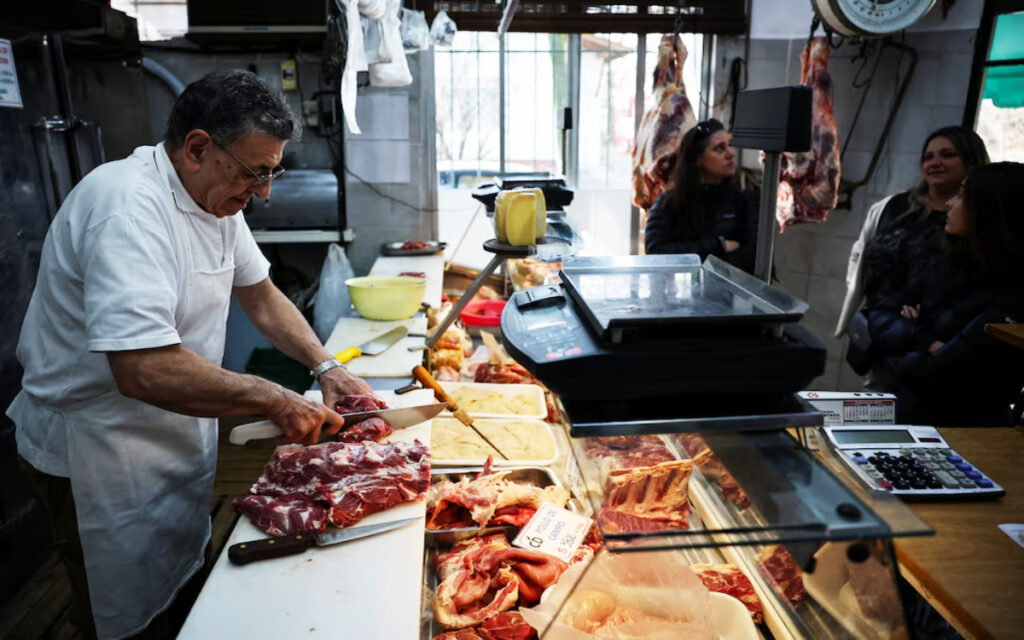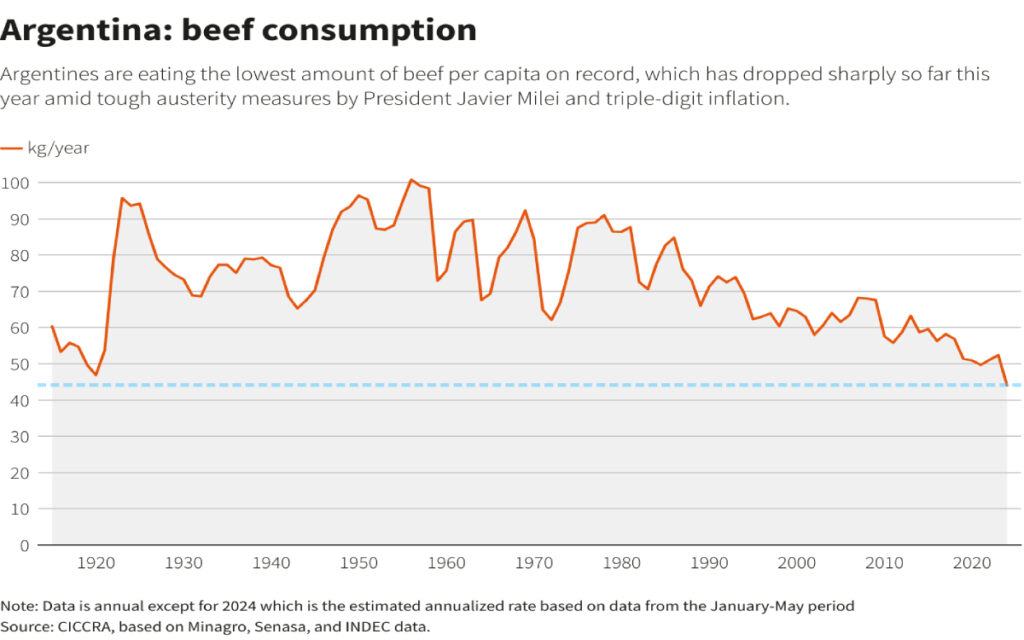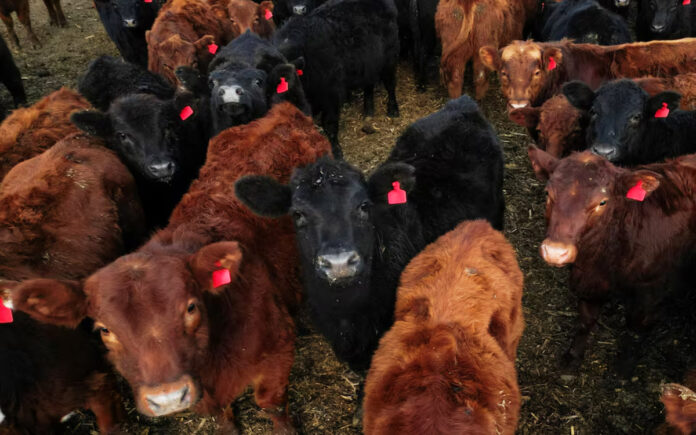Buenos Aires: Argentines, renowned for their love of beef showcased in steakhouses and barbecues, are significantly cutting back on their beef consumption due to soaring inflation and economic recession.
This year, beef consumption in Argentina has plummeted by nearly 16%, reflecting a departure from the country’s longstanding tradition where beef is deeply ingrained in social gatherings alongside soccer and mate tea. Despite cultural significance, economic hardships have forced many households to scale back on spending, with retirees like Claudia San Martin prioritizing beef even over other essentials.
“Beef is sacred in Argentina. It’s like pasta for Italians,” San Martin emphasized while queuing at a butcher shop, underscoring the cultural and emotional attachment to beef in Argentine cuisine.

Current statistics show that Argentines are now consuming approximately 44 kilograms (97 lbs) of beef per year, a stark decline from over 52 kg last year and a dramatic drop from the historical peak of 100 kg per year in the 1950s. This shift is partly due to a broader trend toward more affordable alternatives such as pork, chicken, and pasta, exacerbated this year by severe inflation nearing 300% and economic stagnation under libertarian President Javier Milei.

Also Read | U.S. Envoy Expresses Deep Concern over South China Sea Situation
“The situation is critical. Consumers are making decisions based purely on financial constraints,” noted Miguel Schiariti, president of CICCRA, the local meat chamber, predicting a continued slump in meat consumption as purchasing power continues to erode.
Beyond urban centers, the impact is felt in rural areas like Buenos Aires province, where cattle ranchers like Luis Marchi are seeing reduced demand amid rising production costs and adverse weather conditions. The trend has also seen a surge in meat exports, primarily to China, though lower global prices have tempered the benefits for local farmers.
Also Read | Sino-French Satellite Launched for Astronomical Discovery, Reports CCTV
At the retail level, butchers like Gerardo Tomsin observe a persistent demand for beef but with customers increasingly opting for cheaper cuts. Dario Barrandeguy highlights the growing preference for chicken and pork as viable substitutes amid economic constraints.
President Milei’s policy shifts, including the removal of price controls on beef, have exacerbated the financial strain on consumers, further reducing their ability to engage in cultural practices like barbecues, which are integral to Argentine social life.



